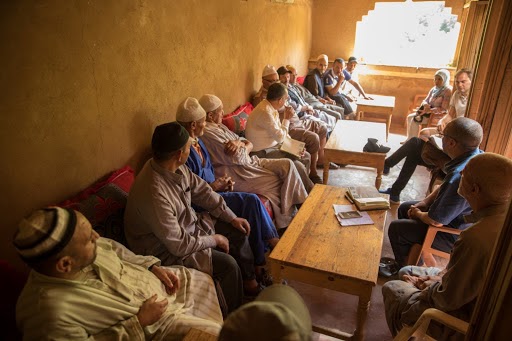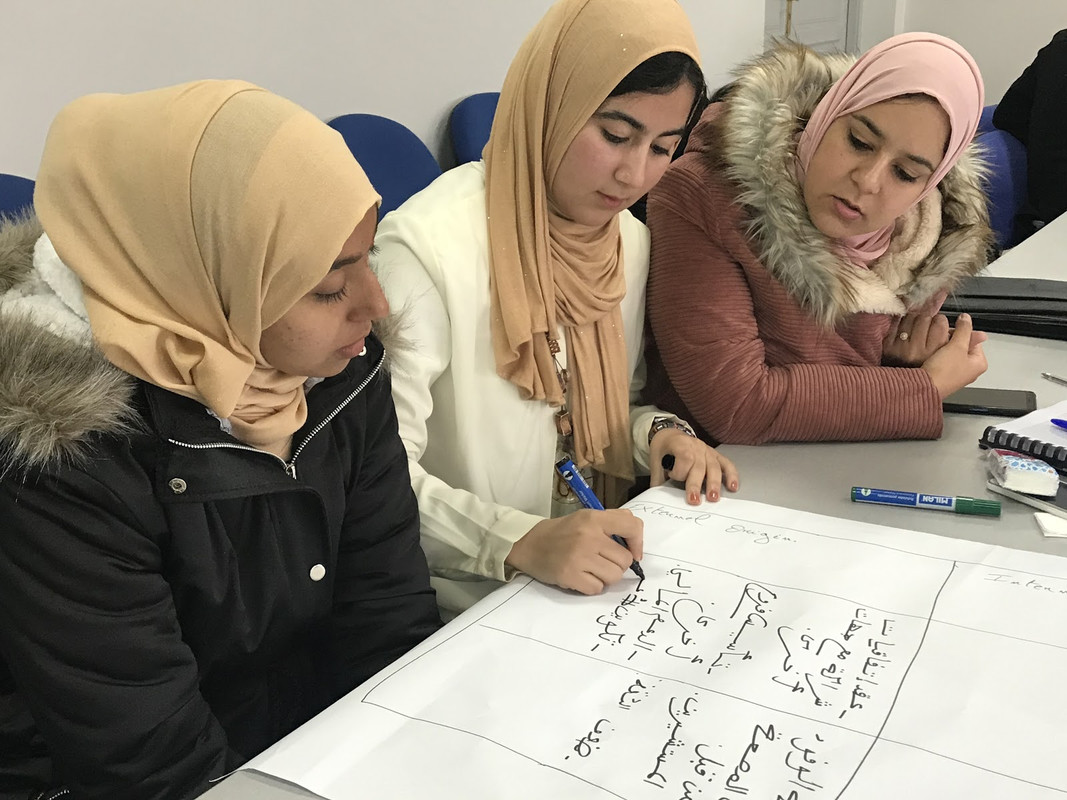PARTICIPATORY DEVELOPMENT TRAINING

HAF applies the participatory method in all its projects, from start to finish. This is essentially a grassroots, “bottom-up” approach: local communities are both the initiators and the beneficiaries of any given initiative and they are fully engaged throughout the process. As such, the timing of meetings, project implementation, and of the overall development process rests with the people–acting in communities–who identify problems, find and implement solutions, and benefit from the initiatives thus created. When local communities perform their own investigation, analysis and implementation of projects, their knowledge (critically built during the data-generating and information-sharing process) is directly relevant. To enable an inclusive planning process to take place, the approach applies visual—and therefore generally accessible—diagramming and planning.
HAF facilitates community meetings and workshops, which are open to everyone, that focus on the community’s data gathering, economic priorities, and project needs. The dialogues that stem from these meetings are integral for future women’s and youth economic empowerment as they give women and youth a platform to voice their ideas as well as sensitize the communities to the prospect of their empowerment.
Participatory community planning has been applied with success in a wide variety of situations, including:
- Business management
- Infrastructural projects
- Poverty alleviation & economic development
- Technological development
- Architectural planning
- Community control of policing and schools
- Creation & delivery of services
- Waste management
- Disaster management
- Peace-building
- Ethnic conflict reconciliation
- Work of welfare organizations
- Farming systems & food production
- Natural resource management
- Cooperatives
- Land use
- Empowerment for disabled
- Adult education
- Gender & youth development
- Organizational development & management
- Building civil society
- Human resources management
- Project & program evaluations
- Policy development, reform, & advocacy
UNIVERSITY STUDENTS
STUDENT ACTIVISM

HAF aims to advance local participation in the planning and implementation of socioeconomic projects in Morocco through participatory democracy activities for students, faculty, civil society organization (CSO) members, elected officials, government representatives, and community leaders. In collaboration with our seven Moroccan University partners, this approach has led to effective skills building with approximately 400 students and 150 members of CSOs in the areas of needs assessment for community action planning, organizational development, project management, and advocacy. Since 2009, we have trained approximately 1,000 students. Our programs have built students’ skills in facilitating participatory planning and decision-making in their communities, as well as provided experiential learning in decentralized socioeconomic development.
HAF’s University Partners include:
- Al-Akhawayn University in Ifrane
- University Sultan Moulay Slimane, Faculty of Science and Technology in Beni Mellal
- University Mohamed I, Center for Human and Social Studies and Research in Oujda
- Hassan II University’s Faculty of Law, Economics, and Social Sciences in Mohammedia
- University Sidi Mohamed Ben Abdellah, Faculty of Letters and Human Sciences Saïs-Fez
- HEEC in Marrakech
- Young Moroccan Leaders of the Hassan II Agronomic and Veteran Institute in Rabat
STUDENT ACTIVISM AND WOMEN’S EMPOWERMENT:
HAF aims to minimize the gender gap in economic participation by connecting female university students with rural women. HAF began facilitating our women’s empowerment IMAGINE workshops in 2016 with rural communities around the Ourika Valley with female students from the University in Mohammedia.
University-based workshops apply the same participatory empowerment knowledge sharing approaches that students later facilitate with rural women. Through participatory mapping exercises, HAF has found that 94% of rural women have not heard of Moudawana (Moroccan Family Law), whereas 100% of female university students are aware of it. University students are therefore in a good position to help rural women. Additionally, they stand to benefit greatly from training as IMAGINE practitioners because they will gain valuable employability skills and work experience.


